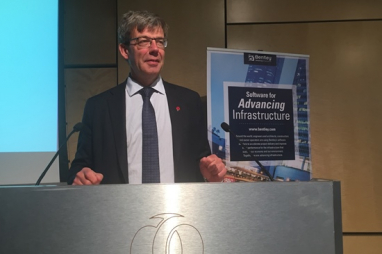- nike dunk armor buy , Cut in half: Nike Metcon 9 Review (2024) , AspennigeriaShops
- adidas Basic Insulated Μπουφάν
- nike air jordan 1 mid outlet
- NikeCourt Air Zoom GP Turbo CK7513 - 101 Release Date - SBD - 101 CK7580 - nike hyperdunk olympic white gold black hair
- bb8587 adidas women sneakers new release
- air jordan 1 mid chicago 2020 554724 173
- Travis Scott Air Jordan 1 High OG CD4487 100 Release Date Price
- Air Jordan 3 Rust Pink CK9246 600
- air jordan 1 retro high og university blue 555088 134
- nike air force 1 boot cordura black wheat university gold do6702 001
- Home
- News and analysis
- Info hubs
- Events
- Video
- Case Studies
- About us
- Magazine
- Advertising
Produced for the industry by the Association for Consultancy and Engineering
News
European industry leaders gather to discuss the challenge of change

Leaders from Europe’s top consultancy and engineering firms gathered at the European Bank for Reconstruction and Development (EBRD) in London today for the eighth European CEO Conference.
The two-day conference, Managing Global Uncertainty - delivering growth for profitability in a shifting business landscape, was opened by James Stewart, global infrastructure chairman at KPMG, who said that he had never known such a period of change, particularly political and societal. This has led to increasing uncertainty, said Stewart.
“One of the main policy solutions to uncertainty and the rise of populism is increased investment in infrastructure and that had to be good news for the construction sector,” he said. However, on the negative side, “the rise of protectionism in many countries was not such good news for the sector,” Stewart said.
“In the future, people are going to matter far more,” said Stewart. “Wherever you look the consumer is getting more power and understanding how consumers behave is going to be increasingly important in the way that we plan infrastructure,” he said
Citing the move away from car ownership amongst the young, Stewart said that this would have a profound impact on the automotive industry of the future. He also said that changing ways of working, working patterns, especially the daily commute, will also impact on the infrastructure sector going forward.
“Understanding consumer behavior will be fundamental in planning infrastructure, but it’s a complicated picture,” Stewart said. The solution was threefold he claimed.
- Governments need to do more
- The industry will have to get better at predicting future behavior
- Firms need to start planning on the basis of multiple scenarios
Stewart said that he thought that technology was a massive issue and the biggest challenge facing most construction companies. “Technology will enable small projects to have a bigger impact,” he said but the industry needed to get much better at the way it uses data. “We have access now to real time data, yet infrastructure is still priced in a crude way, mainly off-peak or on-peak,” he said and that needed to change.
Inevitably, infrastructure productivity will be affected by technology, said Stewart and given the pace of change he predicted that obsolescence of infrastructure would be a real challenge in future, “We need to think differently about design. We have to get quicker and more flexible in our design and innovative,” he said.
Stewart also said that the way that infrastructure is funded needed to change. “We have fiscal constraints at federal level and also constraints at regional level, despite devolved political institutions,” he said. “Funding policies are lagging behind devolution policy and that needs to be looked at,” said Stewart.
In a wide-ranging speech, Stewart also spoke about the effect of globalisation bringing changing clients and new countries in which to do business and the mobility challenge facing an industry where people are everything. “What does it all mean for consultancy and engineering firms? We need to invest more in the business,” he said. “As we do that, business planning also needs to change. Our business planning cycles are still yearly, which is crazy,” said Stewart.

